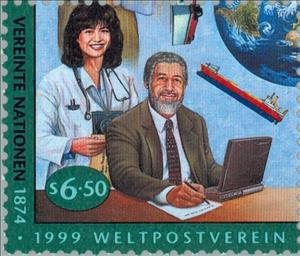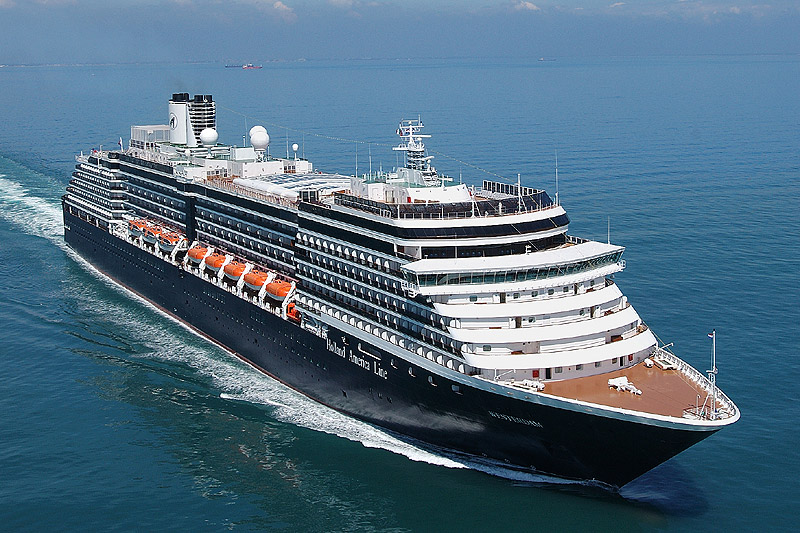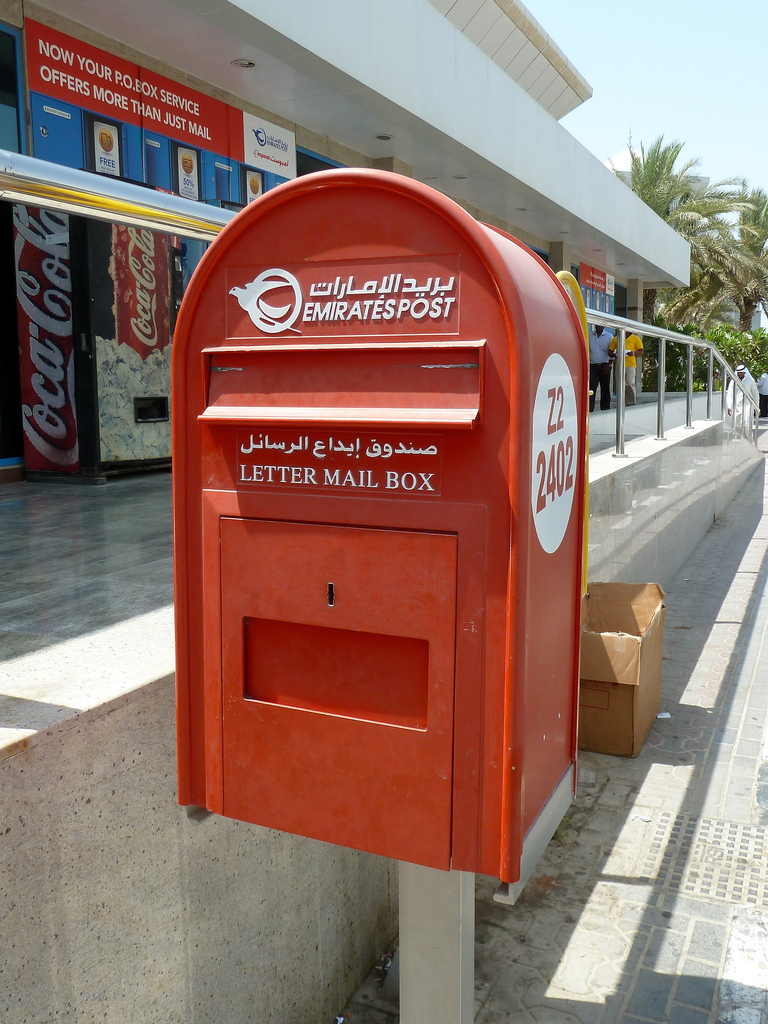Stamp: U.P.U. (UNO Vienna 1999)
U.P.U. (UNO Vienna 1999)
01 January (UNO Vienna ) within release U.P.U. goes into circulation Stamp U.P.U. face value 6.50 Austrian schilling
| Stamp U.P.U. in catalogues | |
|---|---|
| Michel: | Mi:NT-WN 296 |
Stamp is square format.
Also in the issue U.P.U.:
- Stamp - U.P.U. face value 6.50;
- Stamp - U.P.U. face value 6.50;
- Stamp - U.P.U. face value 6.50;
- Stamp - 125 years of U.P.U. face value 6.50;
|
Data entry completed
46%
|
|
|---|---|
| Stamp U.P.U. in digits | |
| Country: | UNO Vienna |
| Date: | 1999-01-01 |
| Emission: | Commemorative |
| Format: | Stamp |
| Face Value: | 6.50 Austrian schilling |
Stamp U.P.U. it reflects the thematic directions:
A ship is a large watercraft that travels the world's oceans and other sufficiently deep waterways, carrying passengers or goods, or in support of specialized missions, such as defense, research and fishing. Historically, a "ship" was a sailing vessel with at least three square-rigged masts and a full bowsprit. Ships are generally distinguished from boats, based on size, shape and load capacity.
The mail or post is a system for physically transporting documents and other small packages; or, the postcards, letters, and parcels themselves. A postal service can be private or public, though many governments place restrictions on private systems. Since the mid-19th century national postal systems have generally been established as government monopolies with a fee on the article prepaid. Proof of payment is often in the form of adhesive postage stamps, but postage meters are also used for bulk mailing. Modern private postal systems are typically distinguished from national postal agencies by the names "courier" or "delivery service". Postal authorities often have functions other than transporting letters. In some countries, a postal, telegraph and telephone (PTT) service oversees the postal system, in addition to telephone and telegraph systems. Some countries' postal systems allow for savings accounts and handle applications for passports.
The Universal Postal Union (UPU, French: Union postale universelle) is a specialized agency of the United Nations (UN) that coordinates postal policies among member nations and facilitates a uniform worldwide postal system. It comprises 192 member states and is headquartered in Bern, Switzerland
A car is a wheeled, self-powered motor vehicle used for transportation and a product of the automotive industry. Most definitions of the term specify that cars are designed to run primarily on roads, to have seating for one to eight people, to typically have four wheels with tyres, and to be constructed principally for the transport of people rather than goods. The year 1886 is regarded as the birth year of the modern car. In that year, German inventor Karl Benz built the Benz Patent-Motorwagen. Cars did not become widely available until the early 20th century. One of the first cars that was accessible to the masses was the 1908 Model T, an American car manufactured by the Ford Motor Company. Cars were rapidly adopted in the United States of America, where they replaced animal-drawn carriages and carts, but took much longer to be accepted in Western Europe and other parts of the world.
A truck or lorry is a motor vehicle designed to transport freight, carry specialized payloads, or perform other utilitarian work. Trucks vary greatly in size, power, and configuration, but the vast majority feature body-on-frame construction, with a cabin that is independent of the payload portion of the vehicle. Smaller varieties may be mechanically similar to some automobiles. Commercial trucks can be very large and powerful and may be configured to be mounted with specialized equipment, such as in the case of refuse trucks, fire trucks, concrete mixers, and suction excavators. In American English, a commercial vehicle without a trailer or other articulation is formally a "straight truck" while one designed specifically to pull a trailer is not a truck but a "tractor"
A computer is a machine that can be programmed to automatically carry out sequences of arithmetic or logical operations (computation). Modern digital electronic computers can perform generic sets of operations known as programs. These programs enable computers to perform a wide range of tasks. The term computer system may refer to a nominally complete computer that includes the hardware, operating system, software, and peripheral equipment needed and used for full operation; or to a group of computers that are linked and function together, such as a computer network or computer cluster.
A globe is a spherical model of Earth, of some other celestial body, or of the celestial sphere. Globes serve purposes similar to maps, but, unlike maps, they do not distort the surface that they portray except to scale it down. A model globe of Earth is called a terrestrial globe. A model globe of the celestial sphere is called a celestial globe
An anniversary is the date on which an event took place or an institution was founded in a previous year, and may also refer to the commemoration or celebration of that event. For example, the first event is the initial occurrence or, if planned, the inaugural of the event. One year later would be the first anniversary of that event. The word was first used for Catholic feasts to commemorate saints. Most countries celebrate national anniversaries, typically called national days. These could be the date of independence of the nation or the adoption of a new constitution or form of government. The important dates in a sitting monarch's reign may also be commemorated, an event often referred to as a "Jubilee".









